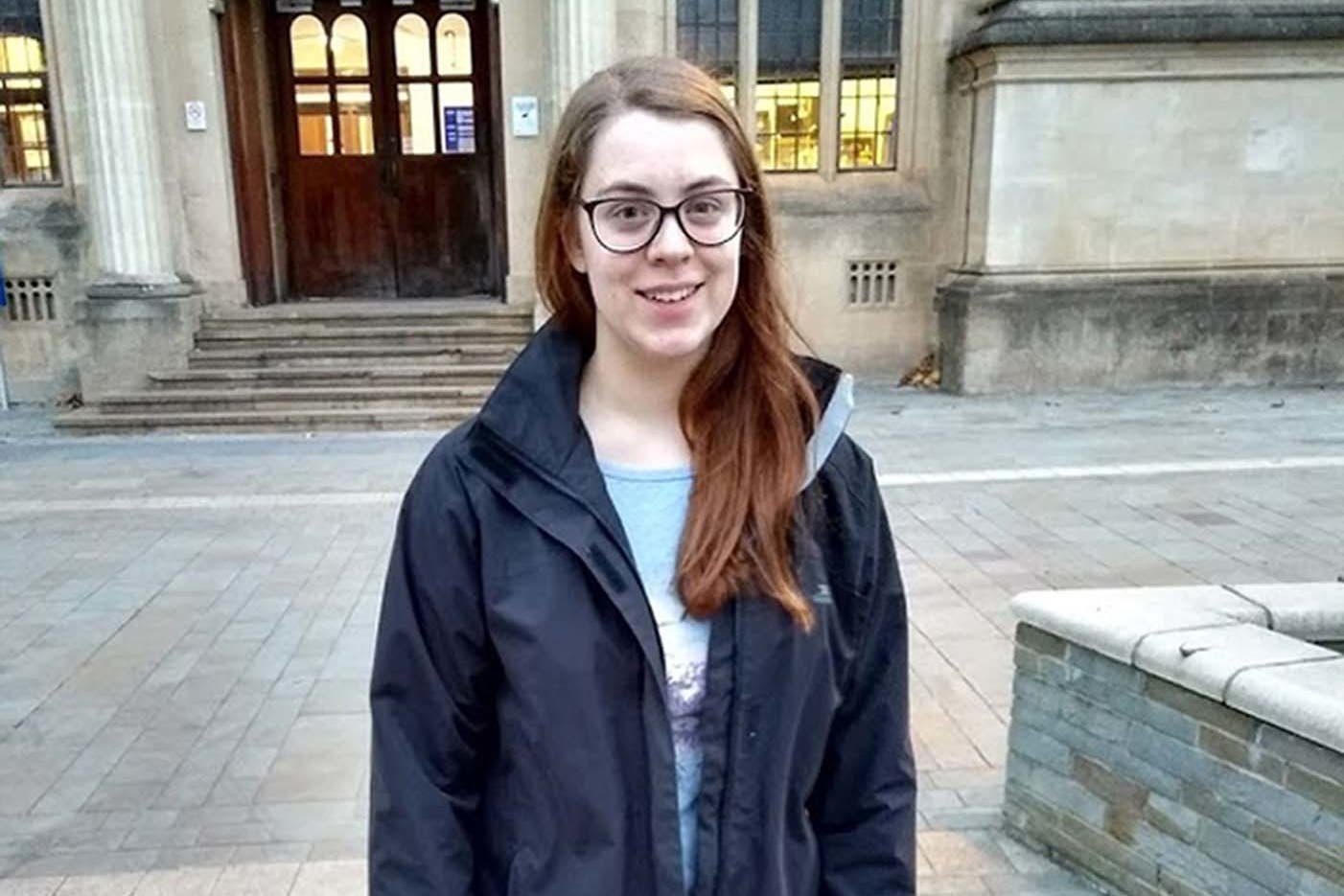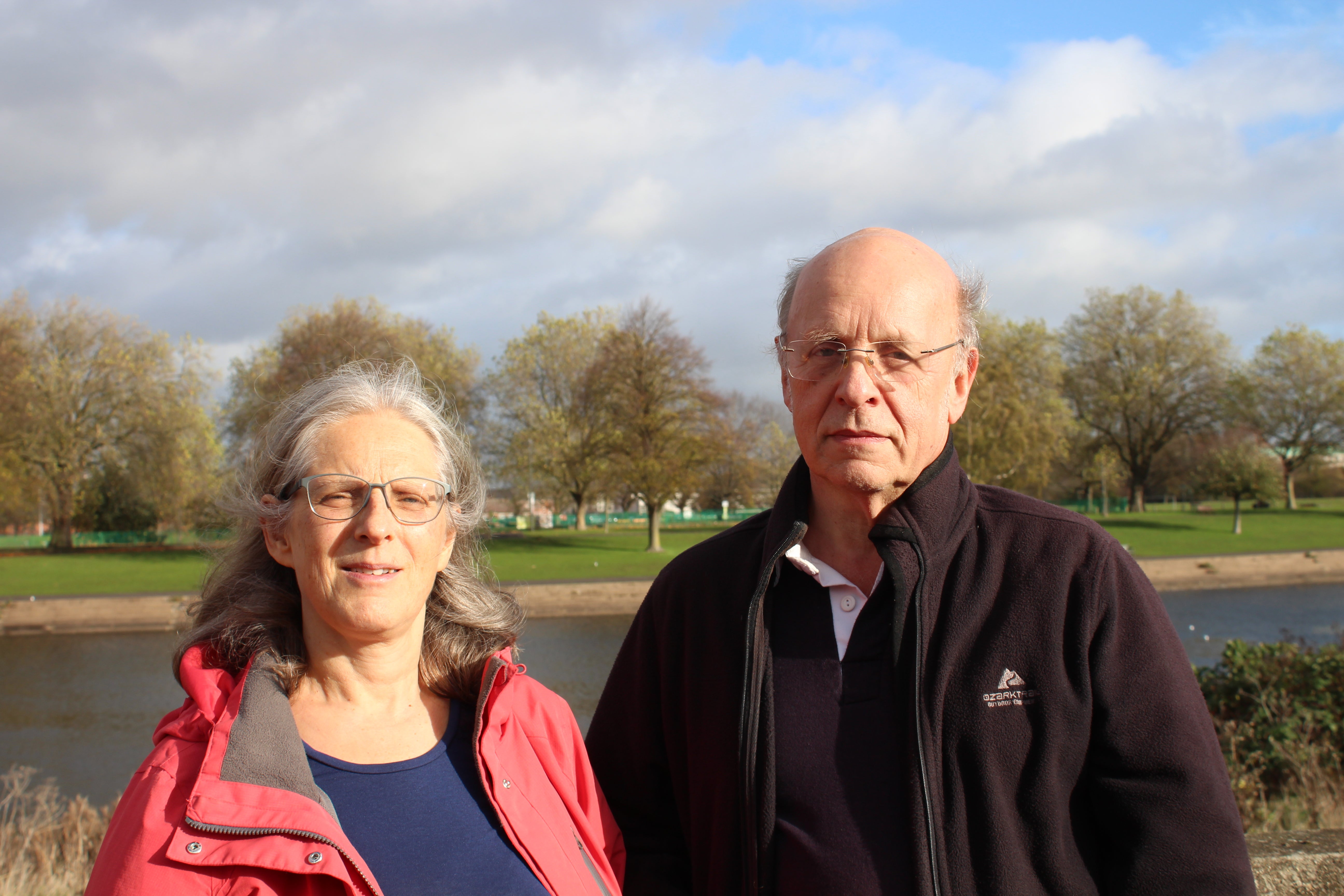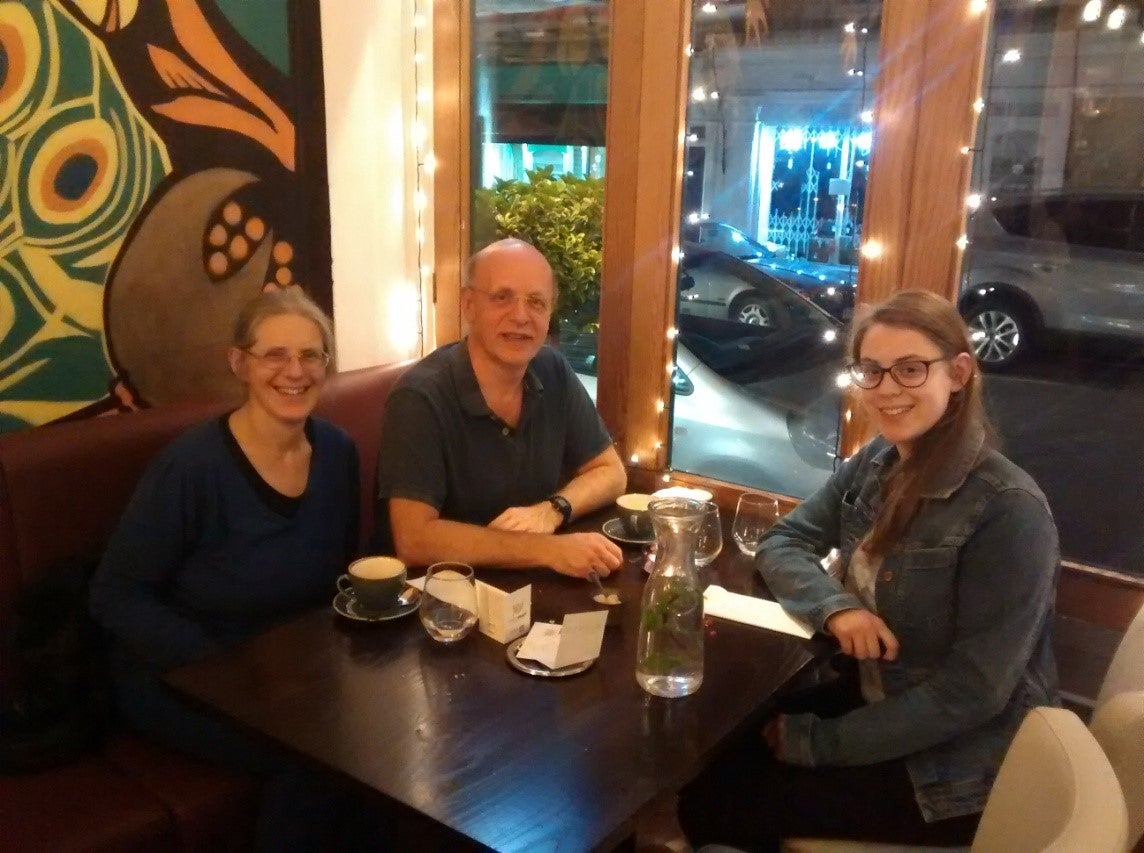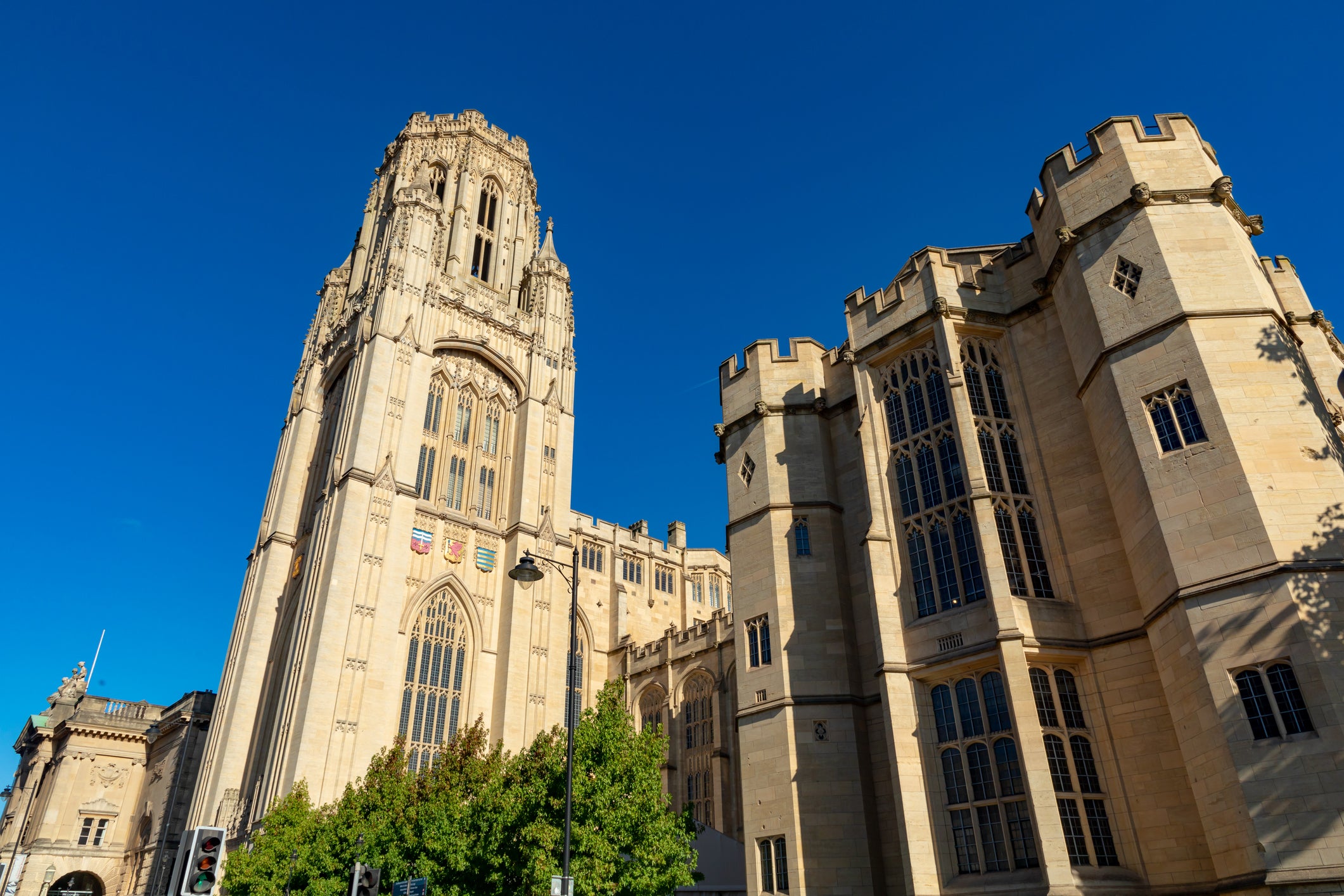‘Shame on you’: Parents accuse Bristol University of failing to learn lessons from student suicide
University loses bid to overturn ruling it discriminated against Natasha Abrahart before killing herself

Your support helps us to tell the story
From reproductive rights to climate change to Big Tech, The Independent is on the ground when the story is developing. Whether it's investigating the financials of Elon Musk's pro-Trump PAC or producing our latest documentary, 'The A Word', which shines a light on the American women fighting for reproductive rights, we know how important it is to parse out the facts from the messaging.
At such a critical moment in US history, we need reporters on the ground. Your donation allows us to keep sending journalists to speak to both sides of the story.
The Independent is trusted by Americans across the entire political spectrum. And unlike many other quality news outlets, we choose not to lock Americans out of our reporting and analysis with paywalls. We believe quality journalism should be available to everyone, paid for by those who can afford it.
Your support makes all the difference.The parents of a student who took her own life have accused her university of failing to learn lessons from her suicide.
Maggie and Bob Abrahart branded the University of Bristol “shameful” after it lost its bid to overturn a ruling that it discriminated against their daughter Natasha Abrahart before she killed herself – yet it failed to acknowledge the High Court decision in its response.
Mr Abrahart said on Wednesday: “Today’s statement from the University is bizarre. It entirely fails to mention that the High Court has upheld a finding that it contributed to our daughter’s death by discriminating against her. Don’t they care?
“Frankly, it gives me no confidence whatsoever that the University of Bristol are willing to learn the lessons from Natasha’s death, even though those lessons have now been spelled out by a High Court judge. It’s shameful.”

The 20-year-old physics student, who had chronic anxiety, was found dead in her flat in April 2018, on the day she was due to take part in a group presentation in front of more than 40 students in a 329-seat lecture theatre.
Ms Abrahart was a “wonderful” person, her parents, from West Bridgford, Nottingham, told The Independent. She was bright, played the piano and cello and loved cooking.
Bristol County Court previously heard Ms Abrahart had made a previous suicide attempt in the winter term, and university staff were aware she was struggling.
Before the presentation, known as a laboratory conference, she had struggled to complete one-on-one interview-based assessments, with the court told she had scored only eight out of a possible 20 marks in one assessment.
In May 2022, Judge Alex Ralton ruled the university had breached its duties under the Equality Act by failing to make “reasonable adjustments” for Ms Abrahart in light of her debilitating anxiety, which is considered a disability.
Judge Ralton, sitting at the Civil Justice Centre in Bristol, also found the university had engaged in indirect disability discrimination against Ms Abrahart, and treated her unfavourably because of the consequences of her disability.

However, the judge dismissed a claim that the university had been negligent.
The university was ordered to pay Ms Abrahart’s parents £50,000 in damages and invited to agree a sum for her funeral expenses.
In December last year, the university brought an appeal in the High Court, arguing that the judge was wrong to find that it knew, or should have known, enough about Ms Abrahart’s condition to adjust the assessments.
Lawyers for the university also said the institution had acted reasonably “given the importance of maintaining academic standards, and fairness to other students”.
However, Ms Abrahart’s father, Robert Abrahart, opposed the appeal, with his lawyers telling the court the judge was right in his decision and that oral assessments could have been replaced with written versions or the student could have been provided with questions in advance.
In a ruling on Wednesday, Mr Justice Linden dismissed the university’s appeal.

He said: “There will no doubt be many cases where it is reasonable to verify what the disabled person says and/or to require expert evidence or recommendations so as to make well-informed decisions… But what a disabled person says and/or does is evidence.
“There may be circumstances, such as urgency and/or the severity of their condition, in which a court will be prepared to conclude that it is sufficient evidence for an educational institution to be required to take action.”
Following the ruling, Professor Evelyn Welch, vice chancellor and president of the University of Bristol, said: “Natasha’s death is a tragedy – I am deeply sorry for the Abrahart family’s loss.
“At Bristol, we care profoundly for all our students, and their mental health and wellbeing is a priority and is at the heart of everything we do. We continue to develop and improve our services and safeguards to support our students who need help.
“In appealing, we were seeking clarity for the higher education sector around the application of the Equality Act when staff do not know a student has a disability, or when it has yet to be diagnosed. We will work with colleagues across the sector as we consider the judgment.”
Prof Welch continued: “In 2022 Bristol became one of the first universities to receive the University Mental Health Charter Award, which recognises the continued hard work of our staff and students in terms of taking a strong, structured approach towards improving mental health and wellbeing across our university.

“We know there is always more to do, and we will keep working to achieve the best for everyone in our community.”
Ms Abrahart’s parents on Wednesday repeated the areas where they blamed the University “for the role it played in our daughter’s death” in words spoken outside the County Court after it handed down its judgment in May 2022.
Adding to the list on Wednesday, Mr Abrahart said: “Today we also blame the University for making inappropriate public statements, issued following the judgment that it has today failed to overturn.
“It was, frankly, beyond belief for the University to mischaracterise a court judgment, that it had unlawfully contributed to the death of one of its students, as merely a finding that ‘the adjustments made by the University … were insufficient’. As if it had engaged in some trivial technical breach. As if our daughter’s death was something to be explained away. As if our pain was an inconvenient distraction from the business, and it is a business, of attracting students and funders. Shame on you!”
Calling for action from the University, Mrs Abrahart said: “We want you to read this judgment very carefully and follow its lessons.” She added that the parents are still waiting for an apology.
In the years since their daughter’s death, the Abraharts have been fighting for justice, with the hope of saving other students from the same fate. Alongside the families of other young people who have tragically died, the couple set up the campaign groups The Lived Experience for Action Right Now (LEARN) Network and #ForThe100 calling for change.

Shannett Thompson, a partner at Kingsley Napley specialising in university misconduct investigations, described Wednesday’s ruling as a “landmark” in the wider debate on the duty of care owed to students by universities.
Chairwoman Baroness Kishwer Falkner of the Equality and Human Rights Commission (EHRC), which intervened in the case, said: “This case will help ensure universities benefit from clearer guidance on their duties under the Equality Act, when they arise, and where the competence standard exception can be applied.
“We also hope that current and prospective disabled students will feel empowered by this judgment, which provides them with clarity on what they should expect from their university.”
The University of Bristol said Prof Welch is writing to Mr and Mrs Abrahart today with an offer to meet with her.
– Samaritans can be called on 116 123, or emailed at jo@samaritans.org
Join our commenting forum
Join thought-provoking conversations, follow other Independent readers and see their replies
0Comments